THE recent spate of controversial prosecutions by the National Prosecuting Authority (NPA) has raised questions about how it is exercising its prosecutorial discretion.
SA’s prosecution system has a huge amount of discretion built into it, the most important being that prosecutors decide whether to pursue a case or halt it.
Prosecutorial discretion is necessary for the system to work, but there is potential for abuse. There are systems in place to guard against such abuse occurring, but much depends on the integrity of individual prosecutors and the institutional culture of the authority.
Hence the alarm when, at the very top of the institution, factional infighting and allegations of political interference appear to be tainting prosecutorial decisions.
Fundamentally, independent prosecutorial decision-making is crucial to the rule of law as it ensures that the law, and the might of the state, applies equally to all.
Former KwaZulu-Natal Hawks boss Johan Booysen, who was charged last week with crimes relating to the time when he headed a specialist police unit in Cato Manor, referred to in the media as a "death squad", has said he is being targeted because of his investigations into high-profile figures.
Former Hawks head Anwa Dramat and Shadrack Sibiya, who was fired as the Gauteng boss of the elite investigative unit, said the same when they were accused of authorising the unlawful rendition of four Zimbabweans.
Charges against them were announced on Friday.
The Democratic Alliance says former prosecutor Glynnis Breytenbach’s prosecution, which was announced two weeks ago, is a "witch-hunt" to distract from its case to have deputy national director of public prosecutions Nomgcobo Jiba suspended until an inquiry has decided if she is fit and proper for her job.
The Constitution, the NPA Act, as well as the authority’s prosecution policy and code of conduct, all set themselves against politically or personally motivated prosecutions.
The Constitution says national legislation must ensure that the NPA "exercises its functions without fear, favour or prejudice". This is repeated in the NPA Act.
The code of conduct says it most explicitly: "The prosecutorial discretion to institute and to stop criminal proceedings should be exercised independently … and must be free from political, public and judicial interference."
The prosecution policy provides guidance on how to exercise prosecutorial discretion. Prosecutors have to assess the evidence before them and must then decide if there is a "reasonable prospect of a successful prosecution".
A prosecutorial decision motivated by political pressure or personal prejudices would be unconstitutional. But this is a separate question as to whether such a prosecution could be set aside.
The courts have said the motive for a prosecution is irrelevant if there is a case to answer.
"The best motive does not cure an otherwise illegal arrest and the worst motive does not render an otherwise legal arrest illegal. The same applies to prosecutions," said Supreme Court of Appeal Justice Louis Harms in 2009.
However, the prosecution may not use its powers for an "ulterior purpose", said Justice Harms.
But an ulterior purpose is something different: it means using a prosecutorial power to secure a purpose other than a prosecution.
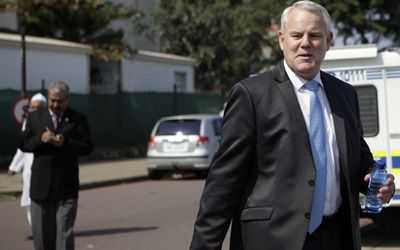
Major-General Johan Booysen, Hawks boss in KwaZulu Natal. Picture: SUNDAY TIMES
THE recent spate of controversial prosecutions by the National Prosecuting Authority (NPA) has raised questions about how it is exercising its prosecutorial discretion.
SA’s prosecution system has a huge amount of discretion built into it, the most important being that prosecutors decide whether to pursue a case or halt it.
Prosecutorial discretion is necessary for the system to work, but there is potential for abuse. There are systems in place to guard against such abuse occurring, but much depends on the integrity of individual prosecutors and the institutional culture of the authority.
Hence the alarm when, at the very top of the institution, factional infighting and allegations of political interference appear to be tainting prosecutorial decisions.
Fundamentally, independent prosecutorial decision-making is crucial to the rule of law as it ensures that the law, and the might of the state, applies equally to all.
Former KwaZulu-Natal Hawks boss Johan Booysen, who was charged last week with crimes relating to the time when he headed a specialist police unit in Cato Manor, referred to in the media as a "death squad", has said he is being targeted because of his investigations into high-profile figures.
Former Hawks head Anwa Dramat and Shadrack Sibiya, who was fired as the Gauteng boss of the elite investigative unit, said the same when they were accused of authorising the unlawful rendition of four Zimbabweans.
Charges against them were announced on Friday.
The Democratic Alliance says former prosecutor Glynnis Breytenbach’s prosecution, which was announced two weeks ago, is a "witch-hunt" to distract from its case to have deputy national director of public prosecutions Nomgcobo Jiba suspended until an inquiry has decided if she is fit and proper for her job.
The Constitution, the NPA Act, as well as the authority’s prosecution policy and code of conduct, all set themselves against politically or personally motivated prosecutions.
The Constitution says national legislation must ensure that the NPA "exercises its functions without fear, favour or prejudice". This is repeated in the NPA Act.
The code of conduct says it most explicitly: "The prosecutorial discretion to institute and to stop criminal proceedings should be exercised independently … and must be free from political, public and judicial interference."
The prosecution policy provides guidance on how to exercise prosecutorial discretion. Prosecutors have to assess the evidence before them and must then decide if there is a "reasonable prospect of a successful prosecution".
A prosecutorial decision motivated by political pressure or personal prejudices would be unconstitutional. But this is a separate question as to whether such a prosecution could be set aside.
The courts have said the motive for a prosecution is irrelevant if there is a case to answer.
"The best motive does not cure an otherwise illegal arrest and the worst motive does not render an otherwise legal arrest illegal. The same applies to prosecutions," said Supreme Court of Appeal Justice Louis Harms in 2009.
However, the prosecution may not use its powers for an "ulterior purpose", said Justice Harms.
But an ulterior purpose is something different: it means using a prosecutorial power to secure a purpose other than a prosecution.


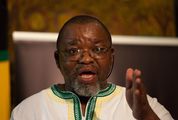
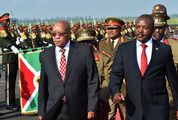
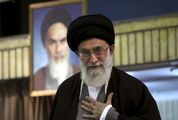
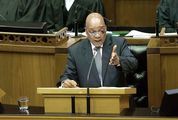















Change: 1.89%
Change: 2.31%
Change: 1.62%
Change: 2.40%
Change: 1.36%
Data supplied by Profile Data
Change: 1.10%
Change: 1.29%
Change: 1.89%
Change: 0.00%
Change: 1.13%
Data supplied by Profile Data
Change: 0.49%
Change: 0.66%
Change: 0.56%
Change: 0.58%
Change: 0.34%
Data supplied by Profile Data
Change: 0.15%
Change: -0.43%
Change: 0.07%
Change: 1.04%
Change: 1.74%
Data supplied by Profile Data